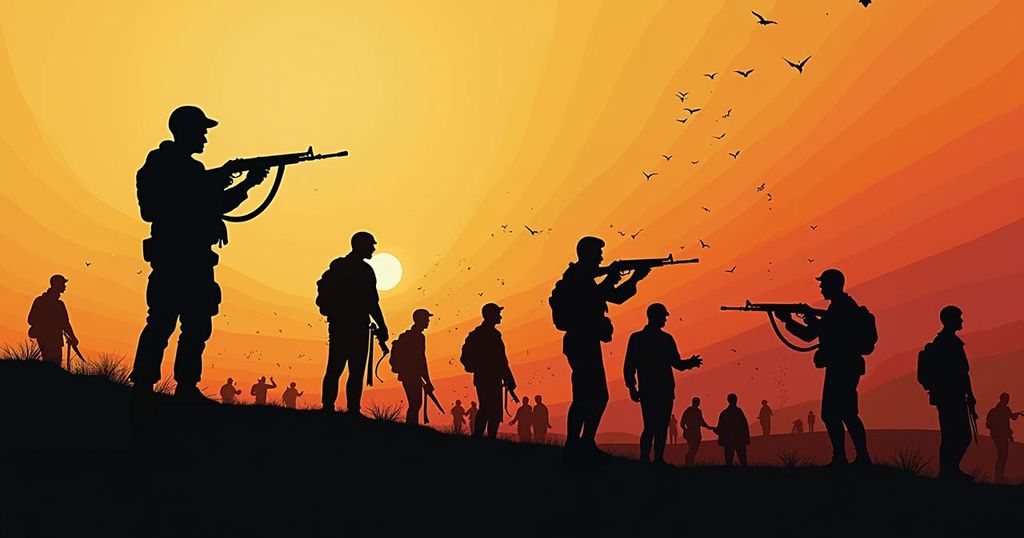This article examines the geopolitical implications of Israel’s military actions against Hezbollah in the context of a new international order characterized by a division between a coalition of inclusion led by the U.S. and a coalition of resistance led by authoritarian regimes. It discusses the significance of these conflicts in Gaza, Ukraine, and the Middle East as they relate to global alliances and the balance of power.
To comprehend the significance of Israel’s recent military action against Hezbollah and its implications for broader geopolitical tensions, it is imperative to view these events through the lens of an evolving international landscape. Following the Hamas assault on Israel on October 7, one must recognize that the contemporary international environment has shifted beyond the confines of the Cold War, entering a phase that may best be described as the “post-post-Cold War” era. In this new context, we observe a duality in global alliances: on one side exists a coalition that I refer to as the “coalition of inclusion.” This coalition is comprised of a diverse array of nations—many not formally democratic—that aspire to advance under the aegis of U.S. leadership, promoting integration, openness, and collaboration in addressing universal challenges such as climate change. Conversely, there is a “coalition of resistance,” epitomized by authoritarian regimes in Russia, Iran, and North Korea, which exploit their opposition to the tendencies of the coalition of inclusion as a pretext for enacting oppressive measures domestically while simultaneously militarizing their societies. China’s position remains complex; it occupies a somewhat ambiguous space straddling both coalitions. The Chinese economy is reliant on access to the coalition of inclusion, yet the political leadership aligns with the authoritarian values commonly espoused by the coalition of resistance. Recent conflicts, including those in Ukraine, Gaza, and Lebanon, should be analyzed within the framework of this global dichotomy. Ukraine’s quest to align with the coalition of inclusion—seeking to extricate itself from Russia’s influence and integrate into the European Union—parallels Israel and Saudi Arabia’s attempts to fortify the coalition of inclusion in the Middle East by normalizing diplomatic relations. The efforts by Russia to inhibit Ukraine’s integration into Western alliances like the EU and NATO, alongside Iran, Hamas, and Hezbollah’s endeavors to thwart Israel from solidifying ties with Saudi Arabia, are crucial to understand. The successful integration of Ukraine into the EU would effectively reinforce the vision of a unified, democratic Europe, thereby isolating Russia and undermining the kleptocratic regime of Vladimir Putin. Similarly, should Israel manage to normalize its relations with Saudi Arabia, it would dramatically expand the coalition of inclusion in that region, threatening to completely encircle Iran and its affiliated factions throughout the Middle East, which include Hezbollah in Lebanon, the Houthis in Yemen, and Shiite militias in Iraq. These groups are often viewed as destabilizing influence driving their respective nations towards failure.
This opinion piece addresses the geopolitical dynamics that have emerged following significant violent conflicts involving Israel and its regional adversaries, particularly Hamas and Hezbollah. It outlines a framework for understanding the interactions among nations in the current international order, suggesting a division between nations striving for inclusion and those resisting it. This conceptualization helps clarify the motivations behind recent military actions and their specific implications for international policies and alliances.
In summary, the recent military engagements between Israel and Hezbollah can be placed within a broader geopolitical struggle that reflects an evolving post-Cold War landscape. The dynamics of inclusion and resistance not only influence immediate conflicts but also reshape the global order, dictating how nations align themselves based on shared interests and governance models. The potential normalization of relations between Israel and Saudi Arabia stands to be a pivotal development that could alter the regional power balance, while the impact on authoritarian regimes remains a crucial aspect of this ongoing interaction.
Original Source: www.nytimes.com






